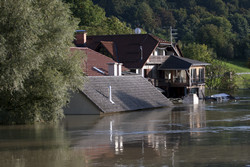Better management of natural disasters
Risk assessment and management, innovation and education have been identified as essential factors for enabling humanity to mitigate future natural disasters. The EU-funded CHANGES (Changing hydro-meteorological risks- As analyzed by a new generation of European scientists) project established a Marie Curie Initial Training Network to develop the training, skills and resources required to fulfil the Hyogo Framework for Action (HFA) plan. The purpose of priority action 2 of the HFA plan is to identify, assess and monitor the risk of disasters, with a particular focus on the impact of environmental change. The HFA was drawn up by the United Nations Office for Disaster Risk Reduction (UNISDR) in order to make the world safer in the face of natural hazards. CHANGES aimed to help develop skills and research in risk assessment and management, and to devise methods and tools for evaluating the changes in risk reduction strategies. A total of 18 young researchers were recruited and trained in the field of hazard and risk management, and support was provided for developing their own research proposals. Scientific outputs include over 35 articles in peer-reviewed journals as well as numerous conference papers and abstracts (over 80). Other outputs were the organisation of two exhibitions on natural hazards and risk management (in France and Romania) and numerous stakeholder workshops. Project partners also developed a system for using volunteers to inspect risk mitigation measures and a prototype decision-support system for disaster risk management. One of the project's main outputs was development of an internet-based spatial decision-support system called RISKCHANGES. This was used to analyse the effect of risk reduction planning alternatives and possible future scenarios related to climate change and land-use changes. RISKCHANGES will help to reduce current and future risks and also support decision makers. CHANGES educated and equipped the next generation of disaster risk management professionals and provided them with the necessary tools to do their jobs. In this way, it contributes to several actionable topics of the HFA.







